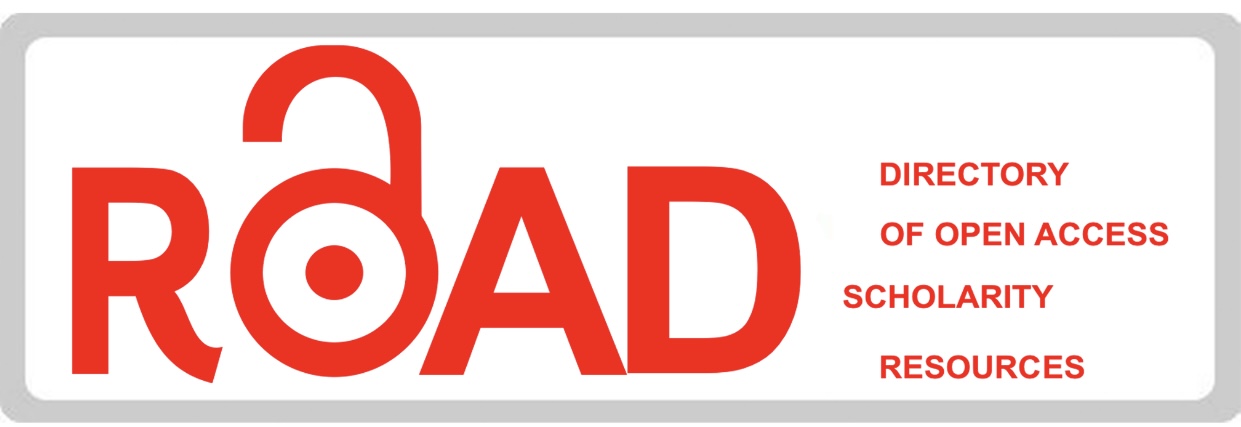Persepsi Organisasional Politik: Tinjauan Sistematis dan Arah Penelitian Masa Depan
Downloads
This article aims to systematically review research on Perceptions of Organizational Politics (POP) by addressing gaps in the literature through discussions on scientific contributions and key issues from previous findings related to the dimensions, antecedents, and consequences of POP. This study analyzes 17 publications found in the Scopus database, published between 2016 and 2023. The findings reveal that POP is a complex concept with diverse definitions and dimensions, influenced by various organizational and individual factors that significantly affect organizational outcomes. This review highlights that, although limited to publications from a single database, the article provides valuable recommendations for future research to explore POP more broadly using other databases. It also offers a critical systematization of the limited but significant POP literature, providing valuable insights for academics and practitioners to deepen their understanding of this concept. Furthermore, the article opens opportunities for further research to address the limitations of empirical testing related to POP, including its antecedents, consequences, theories, and methodologies. Thus, this article not only enriches the POP literature but also provides direction for future research and practical development.
Keywords: Perceptions of Organizational Politics, Systematic Literature Review
Ahmed, K., Ahmed, A., & Adeel, S. (2023). The perceptional triangle of incivility, politics, and democracy: The role of supportiveness. Business and Politics, 25, 53–66. https://doi.org/10.1017/bap.2022.25.
Belausteguigoitia Rius, I., & De Clercq, D. (2018). Knowledge sharing and unethical pro-organizational behavior in a Mexican organization: Moderating effects of dispositional resistance to change and perceived organizational politics. Management Research: Journal of the Iberoamerican Academy of Management. https://doi.org/10.1108/MRJIAM-07-2017-0768.
Chalmers, I., & Glasziou, P. (2009). Avoidable waste in the production and reporting of research evidence. Lancet (London, England), 374(9683), 86–89. https://doi.org/10.1016/S0140-6736(09)60329-9
Chang, C., Rosen, C. C., & Levy, P. E. (2009). The Relationship Between Perceptions of Organizational Politics and Employee Attitudes, Strain, and Behavior: A Meta-Analytic Examination. Academy of Management Journal, 52(4), 779–801. https://doi.org/10.5465/amj.2009.43670894
Child, J., Elbanna, S. & Rodrigues, S. (2010). The political aspects of strategic decision making. In P. C. Nutt & D. C. Wilson (Eds.), Handbook of decision making (pp. 105–137). Chichester: Wiley.
Cho, H.-T., & Yang, J.-S. (2018). How perceptions of organizational politics influence self-determined motivation: The mediating role of work mood. https://dx.doi.org/10.1016/j.apmrv.2017.05.003.
Cropanzano, R., Prehar, C. A., & Chen, P. Y. (2002). Using Social Exchange Theory to Distinguish Procedural from Interactional Justice. Group & Organization Management, 27(3), 324–351. https://doi.org/10.1177/1059601102027003002
Dappaa, K., Bhattia, F., & Aljaraha, A. (2019). A study on the effect of transformational leadership on job satisfaction: The role of gender, perceived organizational politics and perceived organizational commitment. Management Science Letters. https://doi.org/10.5267/j.msl.2019.3.006.
De Clercq, D., & Belausteguigoitia, I. (2017). Mitigating the negative effect of perceived organizational politics on organizational citizenship behavior: Moderating roles of contextual and personal resources. Journal of Management & Organization, 18333672. http://doi.org/10.1017/jmo.2017.7. Cambridge University Press.
De Clercq, D., & Pereira, R. (2023). Perceived organizational politics, organizational disidentification, and counterproductive work behaviour: Moderating role of external crisis threats to work. International Journal of Organizational Analysis. https://dx.doi.org/10.1108/IJOA-10-2022-3442.
De Clercq, D., Haq, I. U., Azeem, M. U., & Hassan, A. (2019). How career plateau beliefs and leader interpersonal unfairness harm job performance in dysfunctional organizational settings. Canadian Journal of Administrative Sciences / Revue Canadienne Des Sciences De L Administration, 37(3), 197–210. https://doi.org/10.1002/cjas.1560
De Clercq, D., Sapienza, H. J., & Crijns, H. (2001). Internationalization intent, organizational learning effort, and entrepreneurial orientation [Conference presentation]. Vlerick Repository.
de Moraes, R. M., & Teixeira, A. J. C. (2020). Gestores, Engajamento e Comportamentos Políticos: Uma Relação Não Linear. Revista De Administração Contemporânea, 24(3), 218–231. https://doi.org/10.1590/1982-7849rac2020180255
Eagly, A. H., & Wood, W. (1999). The origins of sex differences in human behavior: Evolved dispositions versus social roles. American Psychologist, 54(6), 408–423. https://doi.org/10.1037/0003-066X.54.6.408
Eisenhardt, K. M., & Bourgeois, L. J. (1988). Politics of Strategic Decision Making in High-Velocity Environments: Toward a Midrange Theory. The Academy of Management Journal, 31(4), 737–770. https://doi.org/10.2307/256337
Ferris, G. R., & Kacmar, K. M. (1992). Perceptions of Organizational Politics. Journal of Management, 18(1), 93–116. https://doi.org/10.1177/014920639201800107
Ferris, G. R., Fedor, D. B., Chachere, J., & Pondy, L. R. (1989). Myths and Politics in Organizational Contexts. Group & Organization Studies, 14(1), 83–103. https://doi.org/10.1177/105960118901400108
Ferris, G. R., Frink, D. D., Galang, M. C., Zhou, J., Kacmar, K. M. and Howard, J. E. (1996).`Perceptions of organizational politics: predictions, stress-related implications, and outcomes', Human Relations, 49, 233±266
Ferris, G.R., Harrell-Cook, G. and Dulebohn, J.H. (2000), "Organizational politics: The nature of the relationship between politics perceptions and political behavior", Research in the Sociology of Organizations (Research in the Sociology of Organizations, Vol. 17), Emerald Group Publishing Limited, Leeds, pp. 89-130. https://doi.org/10.1016/S0733-558X(00)17004-1
Fleming, P., & Spicer, A. (2008). Beyond Power and Resistance. Management Communication Quarterly, 21(3), 301–309. https://doi.org/10.1177/0893318907309928
Gandz, J. and Murray, V.V. (1980) The Experience of Workplace Politics. Academy of Management Journal, 23, 237-251. http://dx.doi.org/10.2307/255429
Gilmore, D.C., Ferris, G.R., Dulebohn, J.H., & Harrell-Cook, G. (1996). Organizational politics and employee attendance. Group & Organization Management, 21, 481-494.
Gotsis, G., & Kortezi, Z. (2011). Bounded self‐interest: a basis for constructive organizational politics. Management Research Review, 34(4), 450–476. https://doi.org/10.1108/01409171111117889
Harrell-Cook, G., Ferris, G. R., & Dulebohn, J. H. (1999). Political Behaviors as Moderators of the Perceptions of Organizational Politics-Work Outcomes Relationships. Journal of Organizational Behavior, 20(7), 1093–1105. http://www.jstor.org/stable/3100348
Hochwarter, W. A., Kacmar, C., Perrewé, P. L., & Johnson, D. (2003). Perceived organizational support as a mediator of the relationship between politics perceptions and work outcomes. Journal of Vocational Behavior, 63(3), 438–456. https://doi.org/10.1016/s0001-8791(02)00048-9
Islam, T., Rehman, S. U., & Ahmed, I. (2013). Investigating the mediating role of organizational politics between leadership style and followers’ behavioral outcomes. Business Strategy Series, 14(2/3), 80–96. https://doi.org/10.1108/17515631311325123
Judge, T. A., & Colquitt, J. A. (2004). Organizational Justice and Stress: The Mediating Role of Work-Family Conflict. Journal of Applied Psychology, 89(3), 395–404. https://doi.org/10.1037/0021-9010.89.3.395
Khuwaja, U., Ahmed, K., Abid, G., & Adeel, A. (2020). Leadership and employee attitudes: The mediating role of perception of organizational politics. Cogent Business & Management. http://dx.doi.org/10.1080/23311975.2020.1720066.
Kim, J. S. (1980). Relationships of personality to perceptual and behavioral responses in stimulating and nonstimulating tasks. Academy of Management Journal, 23(2), 307–319. https://doi.org/10.2307/255433
Kimura, T. (2013). The Moderating Effects of Political Skill and Leader–Member Exchange on the Relationship Between Organizational Politics and Affective Commitment. Journal of Business Ethics, 116(3), 587–599. https://doi.org/10.1007/s10551-012-1497-x
Kulkarni, S., & Ramamoorthy, N. (2017). The Psychological Foundations of Supervisor–Subordinate Information Asymmetry. Organization Studies, 38(10), 1445–1466. https://doi.org/10.1177/0170840616679453
Lau, A., & Höyng, M. (2023). Digitalization–A matter of trust: A double-mediation model investigating employee trust in management regarding digitalization. Review of Managerial Science, 17, 2165–2183. https://doi.org/10.1007/s11846-022-00598-6.
Lawong, D., Mcallister, C. P., Ferris, G. R., & Hochwarter, W. A. (2018). Mitigating influence of transcendence on politics perceptions’ negative effects. Journal of Managerial Psychology. https://doi.org/10.1108/JMP-09-2017-0337.
Lewin, K. (1936). Principles of Topological Psychology. New York: McGraw Hill. https://doi.org/10.1037/10019-000
Lu, Xuecong., Jiang, Jinglu., Head, Milena., &Yang, Junyi. (2015). “A Systematic Review of Leadership in Online Communities: Social Leaders, Technical Leaders, and Impacts" (2022). AMCIS 2022 Proceedings 10. Retrieved from https:aisel.aisnet.org/amcis2022/vcc/vcc/10
Maslyn, J. M., & Fedor, D. B. (1998). Perceptions of politics: Does measuring different foci matter? Journal of Applied Psychology, 83(4), 645–653. https://doi.org/10.1037/0021-9010.83.4.645
Miller, B. K., Rutherford, M. A., & Kolodinsky, R. W. (2008). Perceptions of Organizational Politics: A Meta-analysis of Outcomes. Journal of Business and Psychology, 22(3), 209–222. https://doi.org/10.1007/s10869-008-9061-5
Mintzberg, H. and Waters, J.A. (1985) Of Strategies: Deliberate and Emergent. Strategic Management Journal, 6, 257-272. http://dx.doi.org/10.1002/smj.4250060306
Nyathi, M. (2022). The effect of electronic human resource management on electronic human resource management macro-level consequences: the role of perception of organizational politics. African Journal of Economic and Management Studies. https://doi.org/10.1108/AJEMS-04-2022-0168.
Peng, A. C., Gao, R., & Wang, B. (2022). Linking servant leadership to follower emotional exhaustion through impression management. Journal of Organizational Behavior, 44(4), 643–659. https://doi.org/10.1002/job.2682
Randall, M. L., Cropanzano, R., Bormann, C. A. and Birjulin, A. (1994, August). `The relationship of organizational politics and organizational support to employee attitudes and behavior'. Paper presented at the 1994 meeting of the Academy of Management, Dallas, TX
Rosen, C. C., & Hochwarter, W. A. (2014). Looking back and falling further behind: The moderating role of rumination on the relationship between organizational politics and employee attitudes, well-being, and performance. Organizational Behavior and Human Decision Processes, 124(2), 177–189. https://doi.org/10.1016/j.obhdp.2014.03.003
Rosen, C. C., Kacmar, K. M., Harris, K. J., Gavin, M. B., & Hochwarter, W. A. (2017). Workplace Politics and Performance Appraisal: A Two-Study, Multilevel Field Investigation. Journal of Leadership & Organizational Studies, 24(1), 20-38. https://doi.org/10.1177/1548051816661480
Vigoda, E. (2003), Developments in Organizational Politics: How Political Dynamics Affect Employee Performance in Modern Work Sites, Edward Elgar, Cheltenham.
Wendler, K., Liu, J., & Zettler, I. (2018). Honesty-Humility interacts with context perception in predicting task performance and organizational citizenship behavior. Journal of Personnel Psychology, 17, 161–171. https://doi.org/10.1027/1866-5888/a000203.
Witt, L. A., Andrews, M. C., & Kacmar, K. M. (2000). The role of participation in decision-making in the organizational politics-job satisfaction relationship. Human Relations, 53(3), 341–358. https://doi.org/10.1177/0018726700533003
Copyright (c) 2024 Tommy Oktavian Basoeki

This work is licensed under a Creative Commons Attribution-ShareAlike 4.0 International License.
All articles submitted by the author and published in the Jejaring Administrasi Publik are fully copyrighted to their authors under the Creative Commons Attribution-ShareAlike 4.0 International License. The formal legal aspect of journal publication accessibility refers to the Creative Commons Attribution-ShareAlike (CC BY-SA).

















